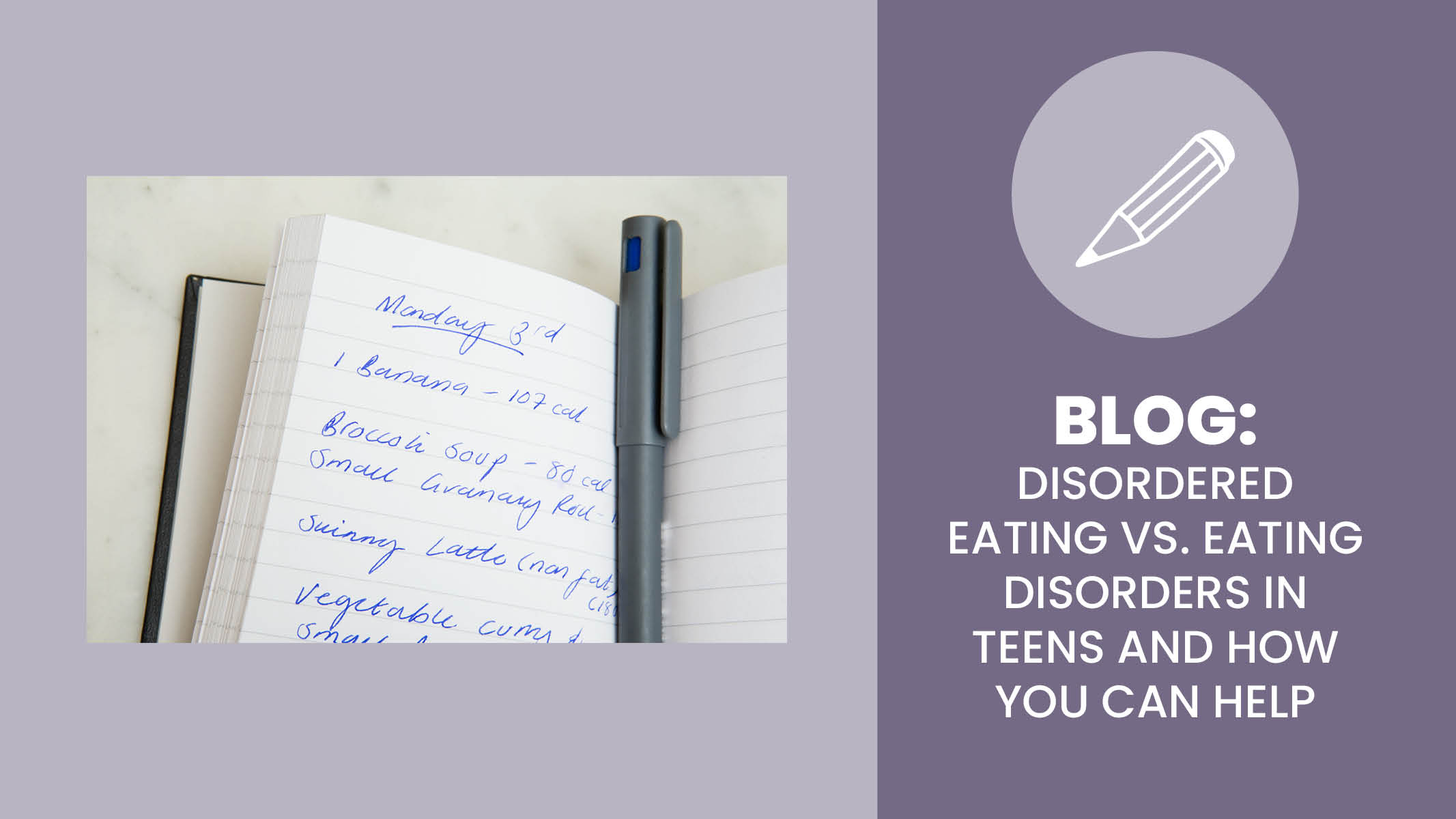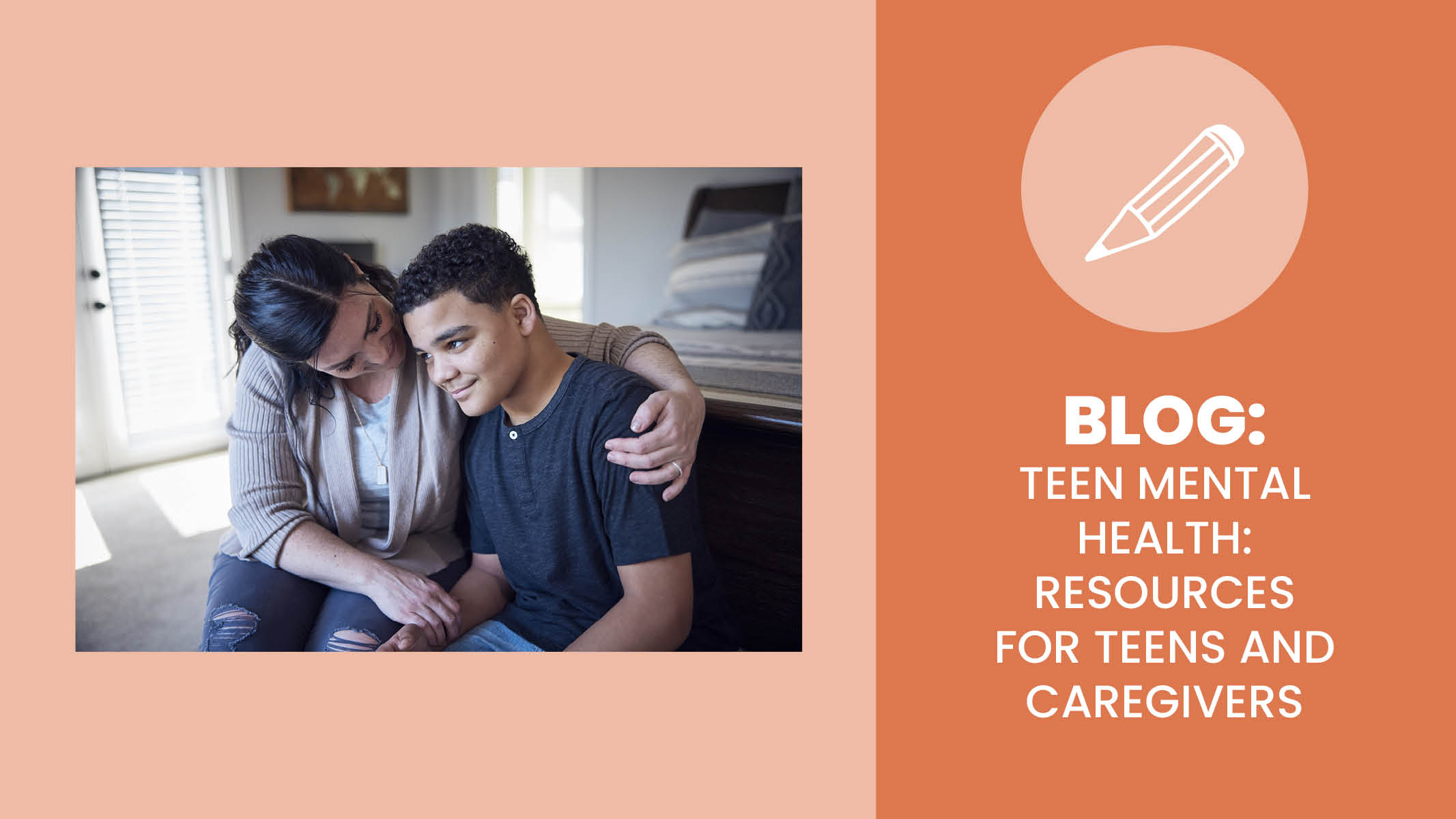We all need calories to fuel our bodies. But sometimes there are a lot of feelings around food, particularly for teenagers. While going through puberty and experiencing sometimes rapid changes in the body, a teenager can worry about how they look and may experience low self-esteem. But what if your teen’s thoughts and actions are going beyond what’s normal?
If that’s the case, your teen isn’t alone. 1 in 5 teens struggle with disordered eating, which can threaten overall health and wellbeing. We sat down with Dr. Lauren Schaefer, a clinical psychologist who treats patients with eating disorders and conducts research to better understand how eating disorders begin and are overcome. She shares insights on disordered eating vs. eating disorders, signs and symptoms to look for in your teen, and action steps to take if you think your teen is exhibiting disordered eating behaviors or an eating disorder.
What are disordered eating behaviors?
Teens who have disordered eating behaviors spend much of their time thinking about food, their weight, and their appearance. If thoughts and eating behaviors create significant distress or interfere with daily life, they may be diagnosed with an eating disorder which is why Dr. Schaefer recommends addressing these behaviors promptly.
What are eating disorders?
Dr. Schaefer explains that “Eating disorders are serious mental health problems that can be diagnosed by a doctor or other mental health provider. These disorders often involve eating too much or too little food, which can cause significant health issues or even death. Eating disorders include anorexia nervosa, bulimia nervosa, binge-eating disorder, and avoidant/restrictive food intake disorder.”
What’s the difference between disordered eating behaviors and eating disorders?
“Disordered eating should be considered a less severe or less frequent form of the behaviors that are exhibited within eating disorders,” Dr. Schaefer explains. “It’s important to remember that disordered eating behaviors are often a precursor to a full-fledged eating disorder which is why it’s important to take these types of behaviors seriously once recognized.”
What are some of the disordered eating behaviors that caregivers should look for? What are the signs of an eating disorder?
According to Dr. Schaefer, symptoms of eating disorders and disordered eating can include:
- Obsessing over calories or the content of food
- Having rigid food rules or labeling foods as “good” or “bad”
- Feeling extremely afraid of gaining weight or guilty for eating certain “bad” foods
- Weighing yourself multiple times a day or week, or constantly monitoring your weight or appearance
- Skipping meals, avoiding certain “bad” foods, or eliminating whole food groups
- Exercising more than is recommended, or feeling that you have to exercise even when you’re sick or exhausted
- Vomiting, or using diet pills, supplements, or laxatives to influence your weight or shape
- Eating large amounts of food and feeling out of control
- Being highly selective or “picky” about eating, in ways that cause health or other problems
- Experiencing large changes in weight
Dr. Schaefer says, “It’s important to know that someone with an eating disorder will exhibit disordered eating behaviors, but not all people with disordered eating will be diagnosed with an eating disorder.”
What are some risk factors that can lead to disordered eating behaviors or eating disorders?
Some risk factors for disordered eating include behavioral health concerns like anxiety, substance abuse, depression, or post-traumatic stress disorder. Other risk factors can include:
- Isolation
- Poor body image or low self-esteem
- Trauma or abuse in childhood
- History of dieting
- Striving for perfectionism
- Being teased or bullied about weight
- Having a family member with an eating disorder
- Playing a sport that focuses on weight such as wrestling or gymnastics
According to Dr. Schaefer, there’s still a lot of research to do in this area, and all genders and backgrounds can experience disordered eating and eating disorders. However, one of the most common risk factors for the onset of disordered eating behaviors or eating disorders is having a strong desire to achieve a particular and often idealized physical appearance. Dr. Schaefer explains that “for girls and women, the ideal appearance is typically a thin physique. For boys and men, the ideal physique is typically muscular or lean.”
What can I do if I see some of the symptoms or warning signs that my teen has disordered eating behaviors or an eating disorder? How can I talk with them about it?
It’s important to talk to your teen. Even though food and weight are not easy topics to discuss, especially with teens who might feel embarrassed or ashamed, creating a safe space for them to express their feelings is important. While creating that safe space, be prepared for teens to express anger or other emotions and remember that showing how they feel is okay. To prevent any feelings of judgment or shame, let’s learn some tips on how to navigate conversations about food and weight with teens:
- Use “I” Statements. Instead of saying, “YOU have to eat something,” try “I am concerned that you didn’t eat breakfast or lunch.”
- Offer Empathy Instead of Advice. Showing empathy can sound like, “I might not understand, but if you need someone to talk to, I am here for you.”
- Ask Open-Ended Questions. Using open-ended questions can help focus on what your teen is feeling rather than on the food or their weight. Here are some examples:
•“I have noticed you aren’t eating the foods you used to love, and it seems that you’re not doing many of the fun things you used to enjoy. Can you help me understand why?”
•“I am worried about you. It seems like you have been more withdrawn lately. Can you tell me about how you’re feeling?”
•“I am worried about your health. Do you think it might be helpful to talk to someone about how you’re feeling?”
Other than talking with my teen, what can I do for them if they’re struggling with disordered eating behaviors or an eating disorder?
According to Dr. Schaefer, don’t be surprised if your teen doesn’t want to talk to you about this topic. Your teen may feel ashamed of these thoughts and behaviors and may also be fearful of changing their behaviors.
She encourages that “Professional help is often needed to help get kids and teens back on track, and early intervention is extremely important to achieving full recovery from these serious mental illnesses. Because of this, I encourage all parents and caregivers to act quickly and talk with your teen’s primary care provider. Your teen’s primary care provider should be able to connect you with experts in eating disorders such as a psychologist or mental health provider and a dietitian. Otherwise resources such as Sanford’s Eating Disorders and Weight Management Center can provide thorough support your teen needs. If you can’t connect with a provider right away, here are some helpful resources.”
- I’m Like, So Fat! by Dr. Diane Neumark-Sztainer
- Help Your Teenager Beat an Eating Disorder by Dr. James Locke and Dr. Daniel Le Grange
- No cost resources can be found here:
Remember that eating habits, body image, and weight are heavy, tough topics, but they remain important, particularly in developing a healthy relationship with food. Continuing to be a positive role model for your teen by modeling healthy habits, a healthy body image, and a healthy relationship with food can go a long way, particularly at a younger age. For more resources on how you can foster body positivity and support your teen, be sure to check out these coping activities for teens and this cheat sheet for caregivers.
The article series on teen mental health is made possible by First International Bank & Trust.
Ready for More? You Might Also Like:
Mental Health is Health
Cheat Sheet for Parents and Caregivers: Stop the Mental Health Stigma
Mental Health is Health: Activities for Teens


